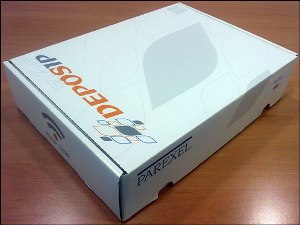Sep 21 2010
Parexel International, a biopharmaceutical Services Company, has concluded the trial segment of a RFID-enabled sensor system, to track down the temperatures of drugs during clinical trials. After the trial the company would introduce a pilot program by the end of the year, wherein pharmaceutical companies would be tagged and tracked, all through the supply chain to hospitals all over the world.
Parexel would use active RFID tags along with a mobile phone and temperature sensors, to obtain data about the trial product’s temperature readings during transportation. If it is found that the RFID System is successful in collecting the data, the company would introduce this system to its clients. The temperature tracking is mainly to make sure that the new products undergoing tests were kept under optimal conditions during transit.
 RFID Sensor System
RFID Sensor System
According to Jens Mattuschka, Director of Parexel, this trial run was a long thought out and planned operation. They had plans of shipping the product, which may be even a single drug, which has been manufactured in small amounts, to several locations globally, to conduct the trials. The exercise is mainly to see that the safety thresholds of temperature are not violated during transit conditions.
Parexel’s Vice President, Kurt Norris stated that, as these medicines are new, their level of sensitivity towards temperature variations are not well documented, as that of approved medicines, and hence is of vital importance to amass temperature information, before they reach the patients. Hence verification of the correct temperature levels ensures the quality of the drug, which could otherwise become a health hazard to the patients.
The products need to be shipped along with a temperature logger, which would scan the temperatures. When the trial run investigator accesses the package of drugs, the logger should be taken out , read, and the temperatures recorded into a software program in the device, and the information transmitted to Parexel’s server for further analysis and reviews, and the drug is to be either accepted or rejected. Another method is to download data through a USB source to a computer, and upload it to the Parexel server via internet.
According to Norris, Future plans include using RFID to track temperature variations for all clinical trials, which would be actually be a source of savings, as manual labor for reading and analyzing data would be decreased, and also the time needed to wait for the results of the investigation would also be reduced.